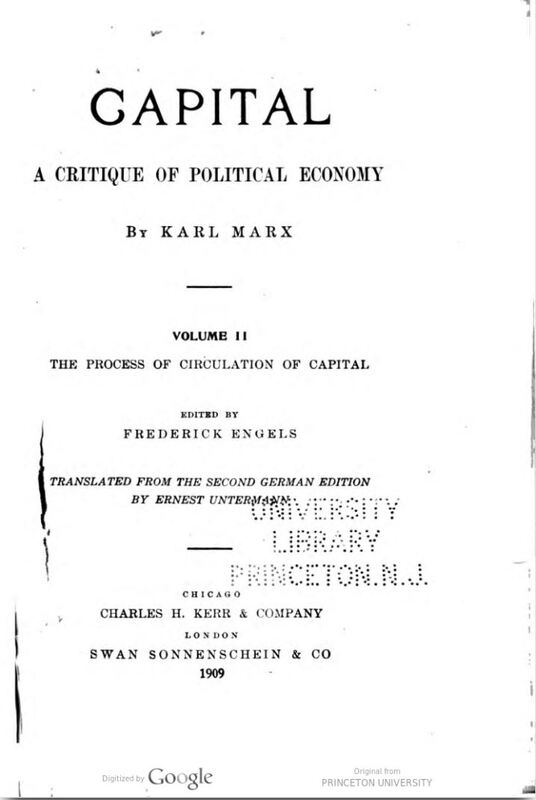Marx’s records (1883-1911)
The journey of the effects of Marx and Engels begins where one might expect, at the side of a death bed on the 14th of March, 1883. Upon his death, Marx left his papers, which included unfinished manuscripts, drafts, letters, and articles to Friedrich Engels. Marx had, by this time, left much of his life’s work incomplete. Due to ill health, financial hardship, and political activity taking up much of his time, he was only ever able to complete the first volume of what he intended to be his most substantial contribution to the world, Capital.
Reconstructing the later volumes of capital would prove to be the major task of Engels life. Aside from this work however Engels would prove a relatively conservative steward of Marx’s papers, releasing very few of his unpublished works to the world as he saw fit.
Upon Engels’ own death, he would leave Marx’s papers to his daughter Eleanor, and his own to German Social Democratic Party (SPD) members August Bebel and Eduard Bernstein. The papers would remain separated until 1911
When he entrusted Engels with his papers, Marx also assigned him a task to “make something” of the many drafts and partial manuscripts for Capital volumes two and three. This project took up a large portion of the remainder of Engels’ life. In collaboration with translators, Marx’s daughters, and peers, Engels attempted to reconstruct the final volumes of Capital as Marx may have wanted them.
The preface included above gives Engels own perspective on this difficult task. Written on the occasion of Marx’s birthday two years after his death in 1885, Engels describes the fragmentary state of Marx’s drafts for this volume, and the bits and pieces from which he had to construct a manuscript suitable to Marx’s own standards. His success or failure in this would be litigated in the decades to come, but his task from Marx was clear
This 2021 reprinting of Marx’s critique of the Gotha Program is a testament – both by its existence and the contextual elements it contains – to the enduring importance of its original manuscript. Written in 1875 to be sent as a private letter to the leaders of the SDP, the text offers a detailed critique of the party program adopted at the congress in Gotha, Germany. Marx’s primary concern was with the positions advocated by the followers of another early German socialist Ferdinand Lasalle, who’s conception of socialism Marx firmly disagreed with.
This manuscript was one of the very few works of Marx’s that Engels chose to publish while he was in control of Marx’s records after his passing in 1883. Engels published the manuscript while the party debated adopting a new platform. He explains his choice in the forward, included here, as being necessary to avoid being “guilty of suppression if I any longer withheld from the public this important… document relevant to this discussion.”
When Eleanor Marx died in 1898, passing her father’s papers onto her sister Laura across the English Channel in Paris, the state of Marx and Engels’ effects was dire. Split in two, disorganized, and poorly handled, the archives were all but impossible to work with. But by the time Laura died in 1911, somebody was there to take proper care of the archive.



